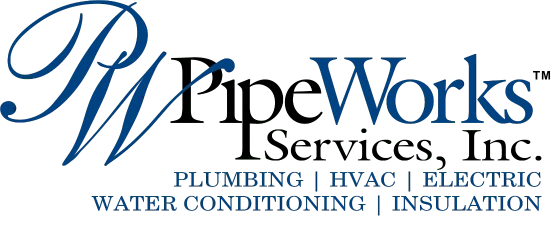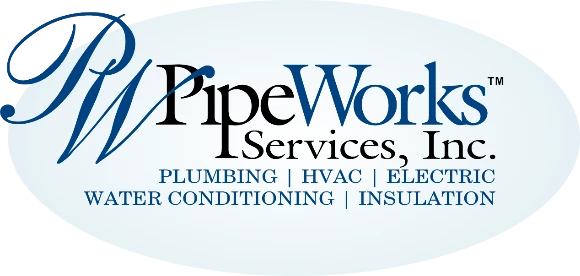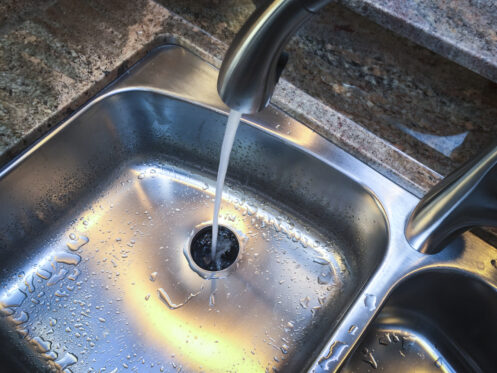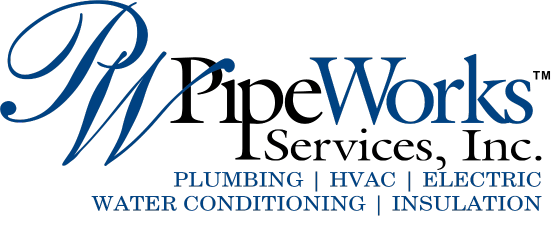Many New Jersey families are concerned about the water they drink, cook with and bathe in. Water quality can change dramatically from one day to the next. That’s why testing your water doesn’t protect you against long-term risks. The best way to enjoy true peace of mind is through water filtration. The challenge there is that there are many types of water filters and a wide range of related considerations. Let’s explore what we think you need to know to make the best choices for your family and home.
Point-of-Use vs. Point-of-Entry Water Filtration
Two core approaches to water filtration are point of use (POU) and point of entry (POE). POU filters include pitcher filters, in-refrigerator filters, countertop filters and under-sink canister filters. The advantage of these systems is that they’re relatively inexpensive up front, but a downside is that they are more expensive over the long term. They also limit you to the fixture to which they’re installed.
POU or whole-house water filters operate between the main water line and the home’s plumbing system. The system treats all the water that enters your home. You have access to that clean water from every faucet, showerhead and other fixture. It’s also the water that your water heater, dishwasher and washing machine use. The downside here is that the upfront cost is much higher. That said, the long-term costs are lower. The filter media is cheaper, and these systems last a lot longer.
Whole-house water filters also allow for a wider range of water filtration types. POU systems are usually only water purifiers and limit you to sediment and activated charcoal filtration. With POE systems, you can choose from the full range of water purification options. You can also integrate water conditioning and water softening, which are topics we’ll expand on in the sections ahead.
Well vs. Municipal Water Supplies
A common concern among homeowners with wells is whether the same water filters are suitable for their homes. The answer is yes, but you will probably customize your system differently. Municipal water often has less sediment. Well water is also more prone to acidity.
Flow Rate
An important consideration for POE water filtration systems is flow rate. We measure flow rate in gallons per minute. This is the amount of filtered water your system can provide every 60 seconds. This is important because POE systems are bottlenecks. If the flow rate is too low, you’ll experience low water pressure during peak demand. You may also experience issues with your hot water supply.
It’s very important to hire a plumber that specializes in water treatment systems. Your plumber will provide an accurate estimate of your peak water demand. That estimate will encompass the:
- Number of residents
- Size of the house
- Appliances you’ll run simultaneously
- Fixtures you’ll use at the same time
Filter Media
When choosing a POE system, it’s important to understand the filter media it uses. The media dictates what the system can remove. It’s also important from a cost perspective. You should know how much the media costs and how often you’ll need to replace it. Experts also recommend avoiding systems that require proprietary filters. It can save you money up front but will usually cost you more in the end.
NSF Certification
The Centers for Disease Control and Prevention (CDC) recommends targeting water filters that the National Sanitation Foundation (NSF) tests and certifies. The NSF sets standards for taste and odor but also cyst reduction and the like. Certified products will have an NSF label. That label will show capacity and the types and sizes of impurities that the system removes.
Prefiltration
Not all water filtration systems have a prefilter. Prefiltration is a type of mechanical filtration. It often involves a relatively cheap filter medium, which traps the largest particles and which you can replace often. This extends the life of the more expensive sediment filter, which provides finer mechanical filtration. You may not need a prefilter. Homes with municipal water often do not. Experts often recommend it for homes with wells. Well water can have larger particles that gunk up a filter quickly.
Sediment Filtration
A sediment filter is the main form of filtration for many water filters. According to the CDC, a core consideration with such filters is pore size. It dictates what can and cannot pass through. The NSF label will distinguish between absolute and mean pore size. If you want a filter that traps everything above 1 micron in size, you want an absolute pore size of 1 micron. A mean pore size of 1 micron indicates that some of the pores are actually bigger than that. Most sediment filters can remove sediment, dirt, silt and even metals. The smaller pore size is more important when your concern is also trapping cysts, such as cryptosporidium, parasites and so forth.
Activated Charcoal Filtration
Some water filters and water conditioners will use activated charcoal as the prefilter or even the main sediment filter. Still, that isn’t the main purpose of activated charcoal, also called activated carbon. This is a processed form of carbon that has many microscopic pores. Those pores give it the ability to absorb impurities and provide extensive surface area for binding them. Experts widely consider this substance the best way to optimize the smell and flavor of drinking and cooking water. It’s also able to absorb impurities like:
- Pharmaceuticals
- Pesticides and herbicides
- Chlorine and chloramines
- Perfluorooctanesulfonic acid
pH Adjustment
The pH scale measures how alkaline or acidic a substance is. For drinking water, the Environmental Protection Agency (EPA) advises a pH between 6.5 and 8.5. While not bound to do so, most municipal water providers maintain pH in this range. Well water is often more acidic. Acidic water can damage teeth, cause toxicity and corrode your plumbing. To make your water more alkaline, experts recommend a water conditioner. It will remove all of the acidic qualities from your water.
Water Softening
The EPA does not set water hardness standards. Both municipal and well water can be hard. That means that it has high calcium and magnesium content. That’s not actually bad for people and pets. It can have a big effect when cooking. It can also gunk up your plumbing and diminish the efficiency and lifespan of appliances, such as water heaters and dishwashers. To make water softer, experts recommend a water softener. Most water softeners use salt to replace the calcium and magnesium with either sodium or potassium.
Would You Like to Upgrade Your Home With Water Filtration?
Pipe Works Services has been helping area households and businesses enjoy cleaner and healthier water since 2000. Located in Chatham, we provide our services throughout Northern and Central New Jersey. Our plumbers perform installations and repairs and are available for emergency services. They clean drains, fix burst pipes and repair and replace main water and sewer lines. Besides water treatment systems, we install fixtures, water heaters and sump pumps.
Our HVAC team installs and services all types of ducted and ductless heating, cooling and air purification systems. We also install, repair, seal and clean ductwork. Our electricians perform inspections, repairs and installations, including standby generators. We also perform home energy audits, install insulation and seal and weatherize homes. Contact us today with questions or to schedule a service appointment or an on-site consultation.





